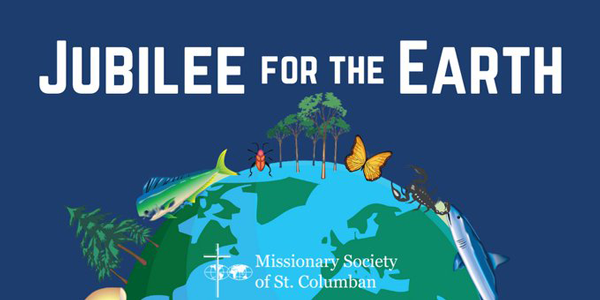Information on the theme
Pope Francis has decreed that 2025 will be a year of Jubilee. The theme he has chosen is 'Pilgrims of Hope'. He urges us to look for signs of hope in the world around us and work for peace and justice.
"May the Jubilee be an opportunity to be renewed in hope."
Pope Francis - Spes non confundit #1
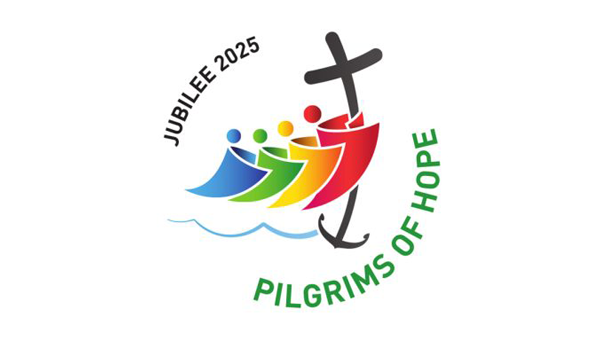
Jubilee
In the Catholic Church, a Jubilee is a special year of forgiveness and reconciliation, in which people are invited to come back into right relationship with God, with one another, and with all of creation.
CAFOD information about Jubilee Year 2025 and Jubilee for Schools Animation.
Biblical background
The word Jubilee comes from the Hebrew word yobel, which is a ram's horn. This wind instrument is blown to mark the start of a Jubilee Year in the Bible (Leviticus 25:9).
The Jubilee Year occurred every 50 years and involved the cancelling of debts, a period of rest for people and the earth, and land being restored to landless communities. Poor and vulnerable communities were given the opportunity for a fresh start on a more equal footing.
In the Gospel of Luke, Jesus makes clear his own mission is to bring Jubilee. In the synagogue at Nazareth he reads from the scroll of the prophet Isaiah, proclaiming the year of the Lord's favour:
"The Spirit of the Lord has been given to me, because he has anointed me to bring good news to the poor, to proclaim liberty to captives and recovery of sight to the blind, to let the oppressed go free, and to proclaim the Lord's year of favour." (Luke 4:18-19)
After reading, Jesus announces: "Today this scripture has been fulfilled in your hearing." Jesus shows us what God's Kingdom of justice, compassion and freedom looks like. He invites us join him in making it a reality.
Hope does not disappoint
The Pope's vision for the Catholic Church's Jubilee year in 2025 is outlined in a document titled 'Spes non confundit' or 'Hope does not disappoint'. Key themes are given below.
Cancel debts
Pope Francis says rich countries must work towards cancelling debts owed by lower-income countries not out of "of generosity", but out "of justice". The Pope says this is because many low-income countries are unable to repay debts and are losing financial resources which could be used to improve the lives of their own peoples.
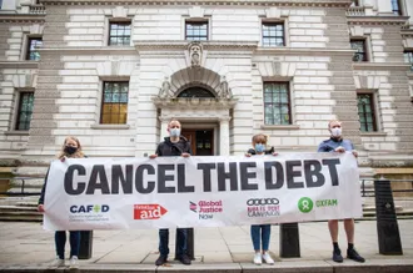
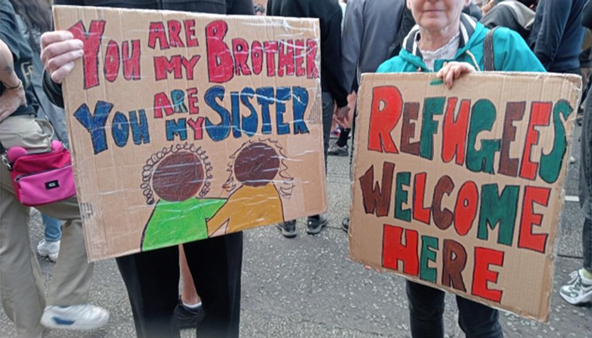
Churches on Merseyside welcoming refugees
Freedom from oppression
In today's world prisoners, migrants, refugees, poor and vulnerable communities can live in slave-like conditions. Pope Francis calls for equality and freedom and urges policies to ensure food and water, shelter, health care and education are available for everyone. He urges initiatives to restore hope.
People who leave their homelands behind in search of a better life for themselves and for their families must not be frustrated by prejudice and rejection and should be welcomed. Exiles, displaced persons and refugees emigrating to avoid war, violence and persecution, ought to be guaranteed security and access to employment and education in their new homes.
Respecting God's Creation
Jubilee reminds us that the goods of the Earth are not destined for a privileged few, but for everyone. The rich must be generous and not ignore those who lack water and food and the basics to live a life of dignity. "Hunger is a scandal" Pope Francis he says.
"It is made all the more serious today by a new form of injustice which we increasingly recognise, namely, that "a true 'ecological debt' exists, particularly between the global North and South, connected to commercial imbalances with effects on the environment and the disproportionate use of natural resources by certain countries over long periods of time".
Pope Francis - Spes non confundit #16

Destruction of rainforest for mining in Latin America
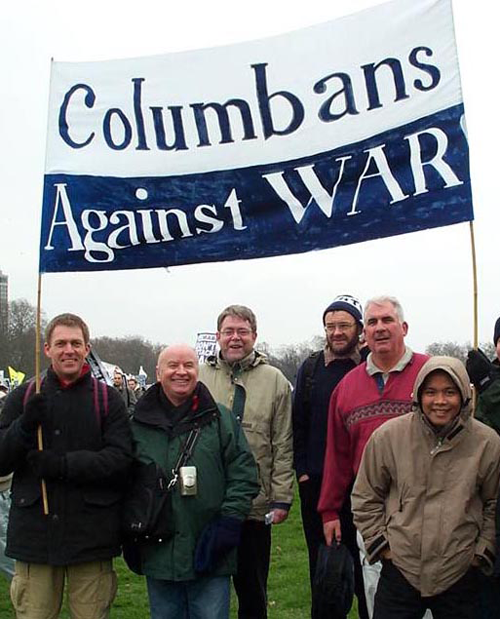
Prepare a path to peace
The Pope also appeals for an end to wars, criticising world leaders for failing to respond to the "desperate plea" of people affected by conflicts around the world. He calls for leaders to pursue diplomacy and negotiations for peace and repeats a demand for money spent on weapons to be diverted to "a global fund that can finally put an end to hunger and favour development in the most impoverished countries".
"If we really wish to prepare a path to peace in our world, let us commit ourselves to remedying the remote causes of injustice, settling unjust and unpayable debts, and feeding the hungry"
Pope Francis - Spes non confundit #16
Signs of Hope
The theme of hope runs through the Jubilee document, with the Pope outlining multiple 'signs of hope' that include the desire for peace and Church initiatives which care for migrants, elderly and sick people and young people.
"We are also called to discover hope in the signs of the times that the Lord gives us…. We need to recognise the immense goodness present in our world, lest we be tempted to think ourselves overwhelmed by evil and violence."
Pope Francis - Spes non confundit #7
Pope Francis says the Jubilee should inspire the Church to make greater efforts to reach out to young people, "for they are the joy and hope of the Church and of the world!"
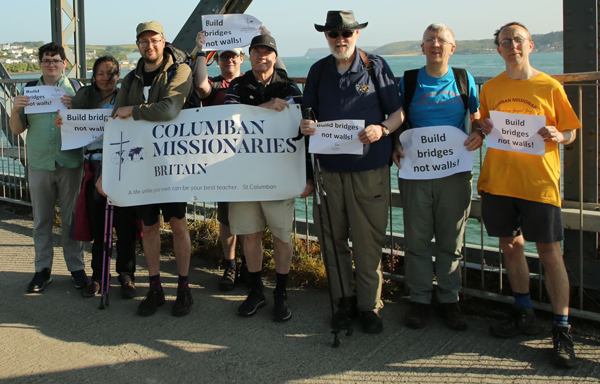
Columban Way Pilgrimage in Cornwall
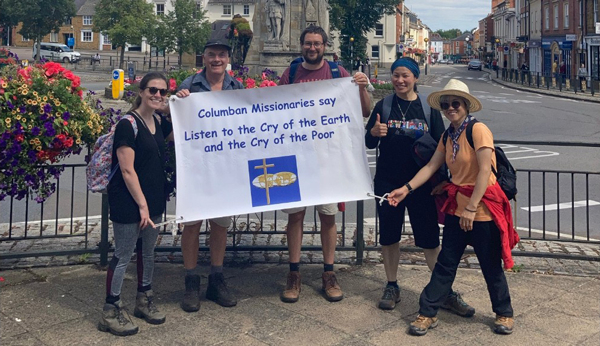
Columbans in pilgrimage relay to COP21 UN climate talks in Glasgow, 2021
Pilgrims of Hope
"Setting out on a journey is traditionally associated with our human quest for meaning in life. A pilgrimage on foot is a great aid for rediscovering the value of silence, effort and simplicity of life."
Pope Francis - Spes non confundit #5
Pilgrimage can also refer to our life's journey. A pilgrim is a traveller. We are pilgrims of hope when we work towards a better future.
"The coming Jubilee will thus be a Holy Year marked by the hope that does not fade, our hope in God. May it help us to recover the confident trust that we require, in the Church and in society, in our interpersonal relationships, in international relations, and in our task of promoting the dignity of all persons and respect for God's gift of creation."
Pope Francis - Spes non confundit #25
Links
CAFOD is organising pilgrimage to sites across England and Wales in Summer 2025.
Pilgrim Ways has organised 'Walking Pilgrimage Ways' within the Catholic dioceses of England & Wales. The hope is that walking pilgrimages will contribute to the common good of our nations through encouraging encounter with others, hospitality, and respect for the environment.

